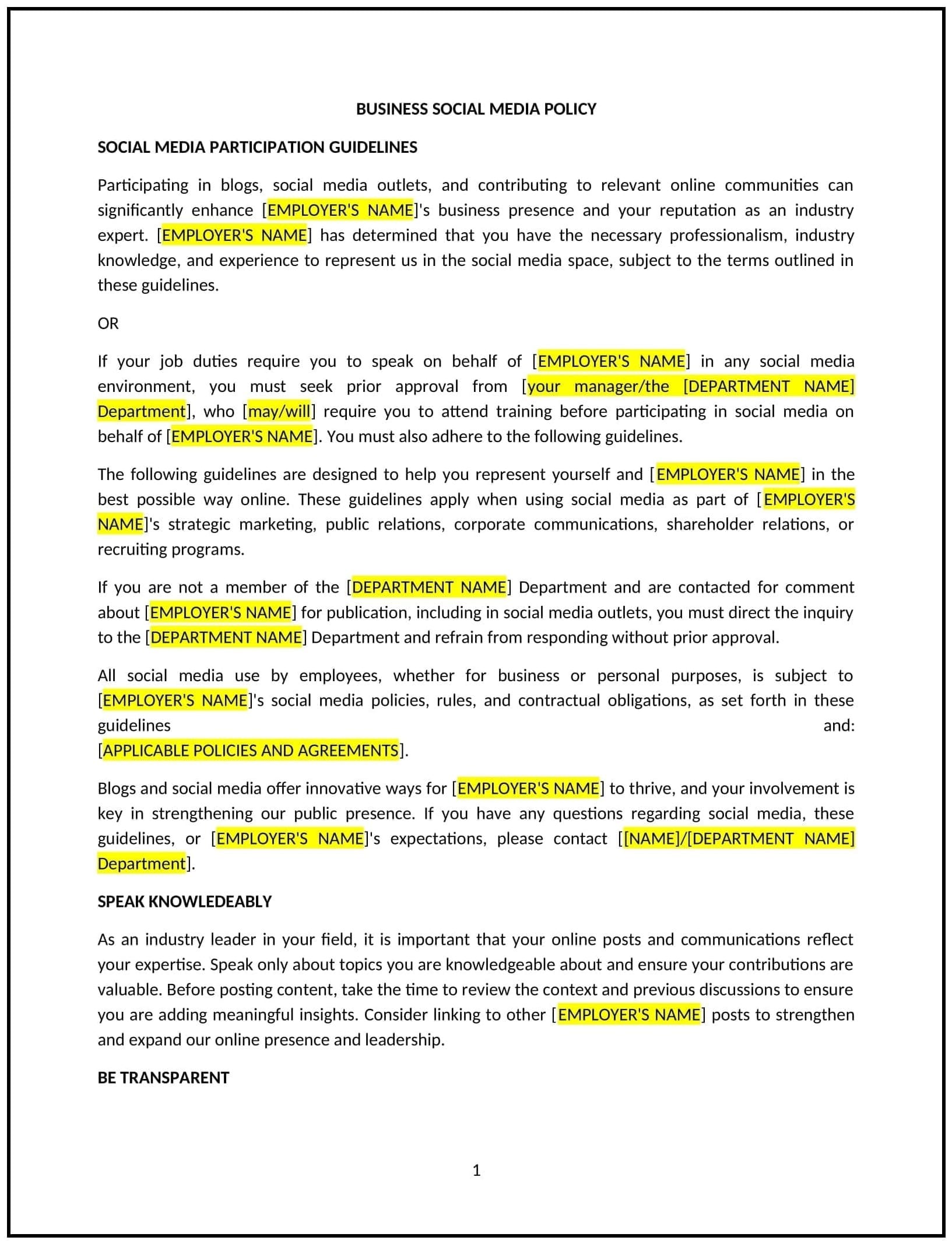Business social media policy (Michigan): Free template
Got contracts to review? While you're here for policies, let Cobrief make contract review effortless—start your free review now.

Customize this template for free
Business social media policy (Michigan)
A business social media policy provides Michigan businesses with guidelines for managing employee use of social media, both during and outside of work hours. This policy ensures that employees represent the company appropriately online, protecting the organization's reputation and confidentiality while allowing for personal expression.
By adopting this policy, businesses can promote responsible social media use, safeguard against potential risks, and establish clear expectations for online behavior.
How to use this business social media policy (Michigan)
- Define acceptable use: Clearly outline what is considered acceptable and unacceptable behavior on social media, including posts that reflect on the business, its employees, or its clients.
- Set guidelines for professional conduct: Emphasize the importance of professionalism in any social media activity related to the business, especially when employees identify themselves as representing the company.
- Establish boundaries for personal and professional use: Specify when employees should separate personal and professional social media use, such as avoiding sharing confidential information or discussing business matters on personal accounts.
- Address confidentiality and privacy: Ensure employees understand the importance of maintaining confidentiality on social media, particularly with regard to business operations, client information, and intellectual property.
- Define consequences for policy violations: Outline the disciplinary actions that may be taken if employees breach the policy, including potential termination for serious violations.
- Monitor social media activity: Detail whether the business will monitor social media activity or if employees are responsible for maintaining compliance with the policy independently.
- Promote positive representation: Encourage employees to use social media as a tool to positively represent the business, share company achievements, and engage with customers or industry professionals.
Benefits of using this business social media policy (Michigan)
This policy provides several key benefits for Michigan businesses:
- Protects business reputation: Helps prevent employees from making inappropriate or harmful posts that could damage the organization’s image or relationships.
- Promotes consistent behavior: Sets clear expectations for how employees should behave online, ensuring consistency in the company’s public presence.
- Reduces legal risks: Minimizes the risk of legal issues, such as defamation, discrimination claims, or breaches of confidentiality, by clearly defining boundaries for social media use.
- Encourages responsible use: Encourages employees to use social media responsibly, both for business promotion and personal expression, while maintaining a balance.
- Enhances employee awareness: Makes employees aware of the potential consequences of their online actions, fostering a more mindful and respectful workplace culture.
Tips for using this business social media policy (Michigan)
- Communicate the policy: Ensure all employees are aware of the policy and its expectations by including it in the employee handbook and discussing it during onboarding or training.
- Encourage engagement: While maintaining professionalism, encourage employees to engage positively with the company’s social media channels to help grow the business’s online presence.
- Monitor and review: Regularly review the policy to ensure it remains up to date with current social media trends, Michigan laws, and the organization’s evolving needs.
- Be consistent in enforcement: Apply the policy consistently across all levels of employees to maintain fairness and reduce the potential for misunderstandings.
- Provide clear guidelines on personal use: Ensure employees understand the distinction between personal social media activity and professional responsibilities, helping them balance both.